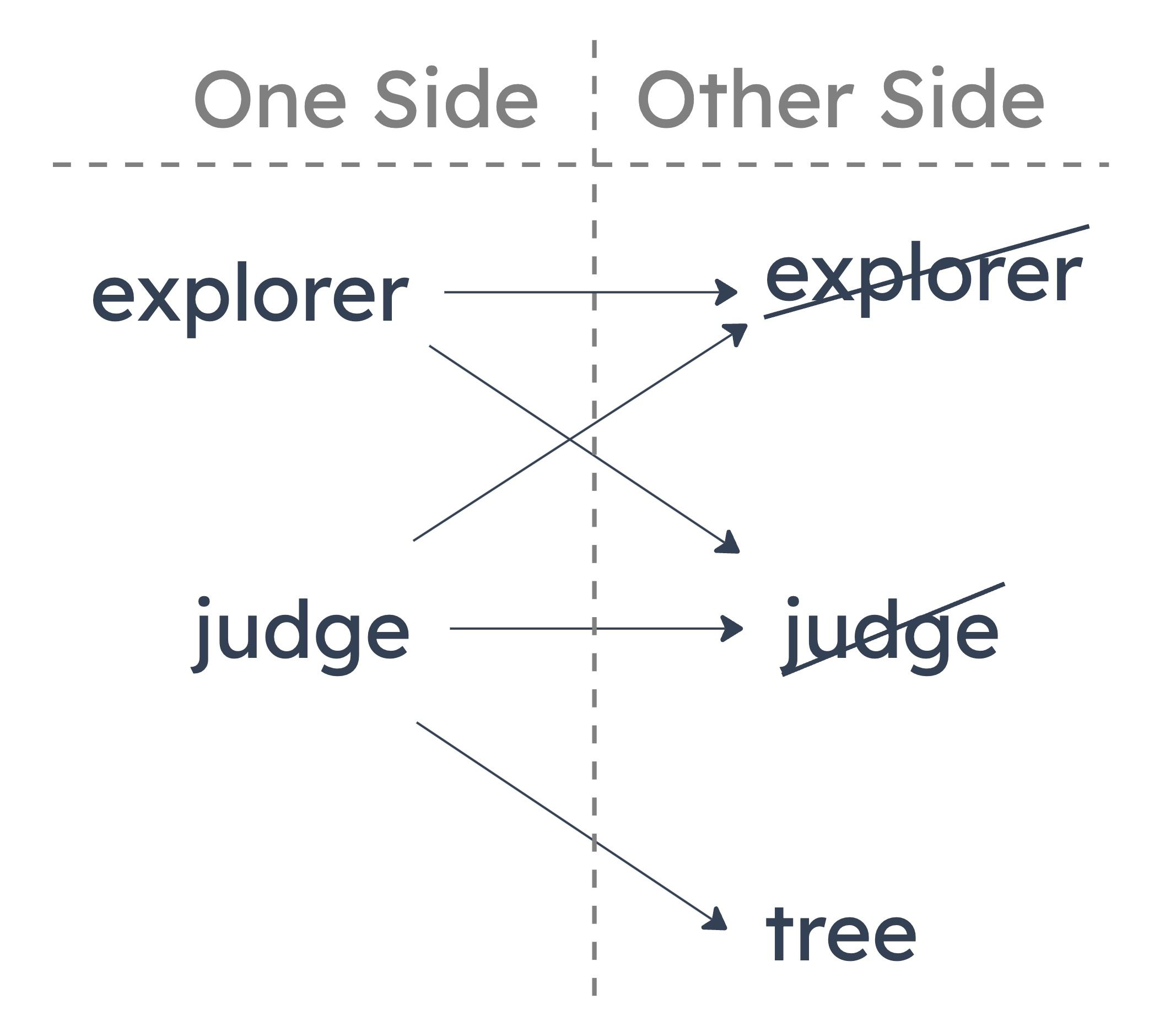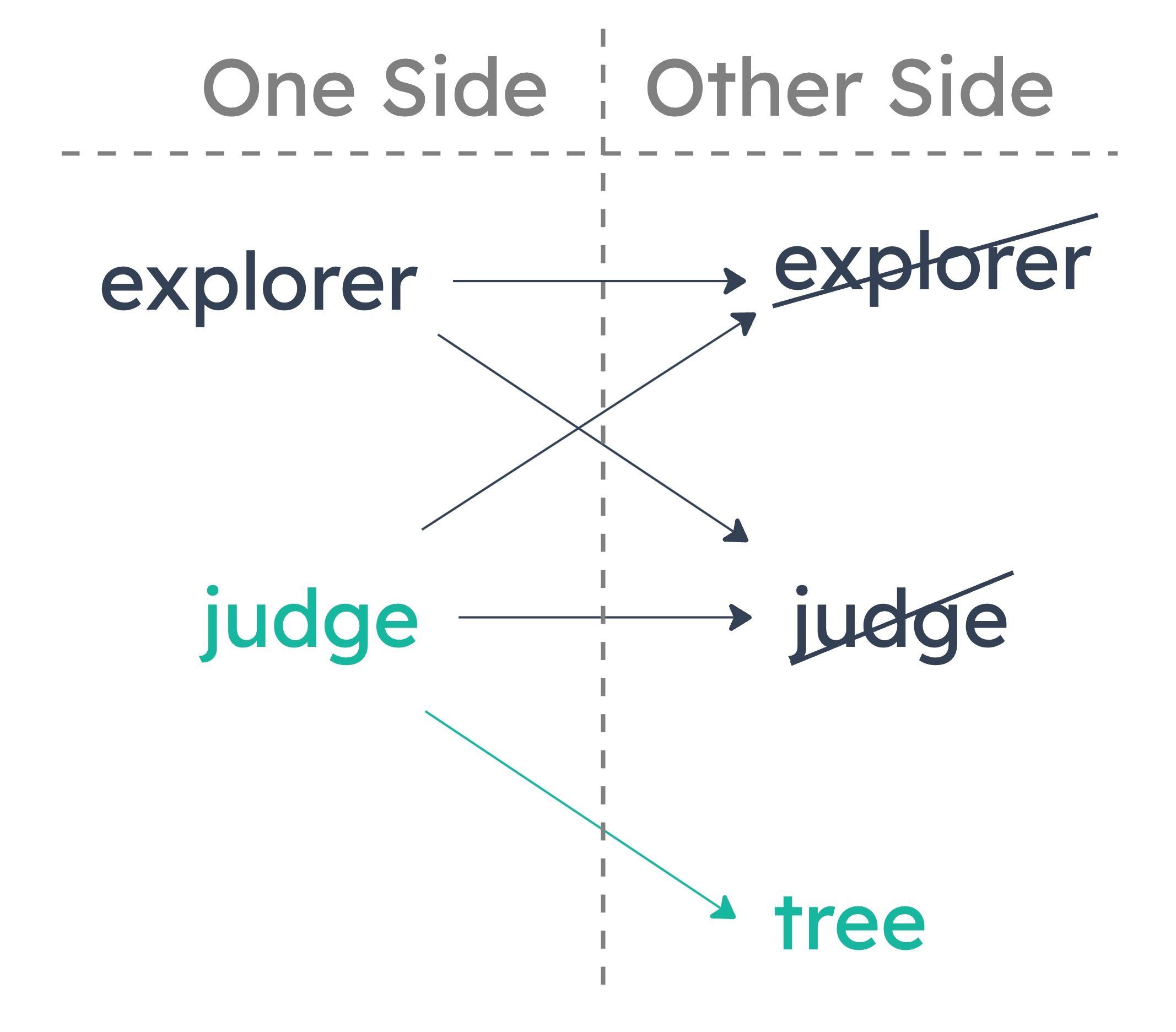Summary
The stimulus can be diagrammed as follows:


Notable Valid Inferences
If you have a judge’s head on one side, you must have a tree on the other side.
If you have an explorer’s head on one side, you can have a building or a tree on the other side.
If you have a building on one side, you can have a building, a tree, or an explorer’s head on the other side.
If you have a tree on one side, you can have a tree, a judge’s head, an explorer’s head, or a building on the other side.
If you have an explorer’s head on one side, you can have a building or a tree on the other side.
If you have a building on one side, you can have a building, a tree, or an explorer’s head on the other side.
If you have a tree on one side, you can have a tree, a judge’s head, an explorer’s head, or a building on the other side.
A
All those with an explorer’s head on one side have a building on the other.
This could be false. A coin with an explorer’s head on one side could have a building OR a tree on the other side.
B
All those with a tree on one side have a judge’s head on the other.
This could be false. Any coin with a tree on one side could have a tree, a building, an explorer’s head, or a judge’s head on the other side. (We know JH→T, but it would be confusing the sufficient and necessary conditions to claim that T→ JH).
C
None of those with a tree on one side have an explorer’s head on the other.
This could be false. A coin with a tree on one side can have a tree, a building, an explorer’s head, or a judge’s head on the other side.
D
None of those with a building on one side have a judge’s head on the other.
This must be true. Any coin with a judge’s head on one side must have a tree on the other side, so a coin with a judge’s head on one side would not have a building or an explorer’s head on the other side.


E
None of those with an explorer’s head on one side have a building on the other.
This could be false. A coin with an explorer’s head on one side could have a building or a tree on the other side.
Summarize Argument: Phenomenon-Hypothesis
The analyst hypothesizes that university administrators tend not to choose university professors who do not pursue research for scientific administration positions. This is based on a phenomenon demonstrated by a recent survey: biology professors who don’t pursue research are underrepresented in scientific administrative positions.
Notable Assumptions
The analyst assumes a causal relationship based on a correlation. Specifically, the analyst assumes that the underrepresentation of professors who do not pursue research in scientific administrative positions is caused by their choice not to engage in research.
A
In universities there are fewer scientific administrative positions than there are nonscientific administrative positions.
This does not affect the argument. Nonscientific administrative positions are not relevant to, and outside the scope of, the argument.
B
Biologists who do research fill a disproportionately low number of scientific administrative positions in universities.
This weakens the argument. It attacks the assumption that the professors’ failure to pursue research leads to their underrepresentation in science admin positions (instead of another factor), which implies that those who pursue research would be better represented in these roles.
C
Biology professors get more than one twentieth of all the science grant money available.
This does not affect the argument. Grant money is not relevant to, and outside the scope of, the argument.
D
Conducting biological research tends to take significantly more time than does teaching biology.
This does not affect the argument. The time it takes to conduct research is not relevant to, and outside the scope of, the argument.
E
Biologists who hold scientific administrative positions in the university tend to hold those positions for a shorter time than do other science professors.
This does not affect the argument. The argument is concerned with one’s likeliness to be appointed to a scientific administration position in the first place. The time biologists spend in these positions is outside the scope of the argument.